- Home
- Brian Lumley
Necroscope: The Touch
Necroscope: The Touch Read online
NECROSCOPE®
THE TOUCH
TOR BOOKS BY BRIAN LUMLEY
THE NECROSCOPE® SERIES
Necroscope
Bloodwars
Necroscope: Vamphyri!
Necroscope: The Lost Years
Necroscope: The Source
Necroscope: Resurgence
Necroscope: Deadspeak
Necroscope: Invaders
Necroscope: Deadspawn
Necroscope: Defilers
Blood Brothers
Necroscope: Avengers
The Last Aerie
Necroscope: The Touch
THE TITUS CROW SERIES
Titus Crow, Volume One: The Burrowers Beneath & The Transition of Titus Crow
Titus Crow, Volume Two: The Clock of Dreams & Spawn of the Winds
Titus Crow, Volume Three: In the Moons of Borea & Elysia
THE PSYCHOMECH TRILOGY
Psychomech
Psychosphere
Psychamok
OTHER NOVELS
Demogorgon
The House of Doors
Maze of Worlds
Khai of Khem
The House of Cthulhu
Tarra Khash: Hrossak!
SHORT STORY COLLECTIONS
Fruiting Bodies and Other Fungi
The Whisperer and Other Voices
Beneath the Moors and Darker Places
Harry Keogh: Necroscope and Other Weird Heroes!
NECROSCOPE®
THE TOUCH
BRIAN LUMLEY
This is a work of fiction. All the characters and events portrayed in this novel are either fictitious or are used fictitiously.
NECROSCOPE®: THE TOUCH
Necroscope® is a registered trademark of Brian Lumley.
Copyright © 2006 by Brian Lumley
All rights reserved, including the right to reproduce this book, or portions thereof, in any form.
This book is printed on acid-free paper.
A Tor Book
Published by Tom Doherty Associates, LLC
175 Fifth Avenue
New York, NY 10010
www.tor.com
Tor® is a registered trademark of Tom Doherty Associates, LLC.
ISBN 10: 0-765-31609-9
ISBN 13: 978-0-765-31609-7
First Edition: June 2006
Printed in the United States of America
0 9 8 7 6 5 4 3 2 1
This one,
with affection, is for
the pair who accompanied me
in my “grave” search for Möbius
in Leipzig: Frank “Uncle” Festa,
and Helmi Sigg; also for all
KeoghConners, past, present,
and future.
NECROSCOPE®
THE TOUCH
A RÉSUMÉ OF SORTS
At 3:33 A.M. on a wild and rainy Sunday in mid-February, 1990, thirteen members of E-Branch—the strangest, most esoteric of England’s several Secret Services—experienced something that astonished even them: the destruction of a man who was once one of their own, but no longer. They experienced, in fact, the death of Harry Keogh, Necroscope, transmitted to E-Branch HQ via some fantastic and unknown psychic medium from a world in a parallel universe, a world known only as Sunside/Starside.
Harry had gone there to escape the persecution and death—though not necessarily his death—which must surely follow if he remained in the world of men. For no longer a man, other and far more than a man, ordinary mortals would attempt to hunt him down because of what he had become as a result of his selfless services to mankind: a Great Vampire, a Lord of the Undead, the last of a race of beings who called themselves Wamphyri!
Neither an old wives’ tale nor a grotesque myth, since time immemorial these Great Vampires had hidden among us, preying on men and secretly inhabiting our planet—but their source-world was Sunside/Starside. As to how they came here:
Certain Wamphyri Lords—“victims” in their own right, the vanquished of Starside bloodwars—had been banished through a worm-hole gate on their world, only to reemerge on Earth in old Wallachia, the ancient source of all vampire “legends.” And for centuries Wallachia, now Romania, was their secret seat.
But when their plague had looked set to explode across the world, inundating mankind, then it had been time for the Necroscope, Harry Keogh—the man who talked to dead people in their graves and used a metaphysical medium known as the Möbius Continuum as an instantaneous means of conveyance—to seek out and destroy them, one by one. But when dealing with the most devious of all Earth’s Wamphyri, that Father of Lies, Faethor Ferenczy, Harry had come too close and had been infected.
And so when he left our world for Starside, the Necroscope wasn’t simply running for his life, but for ours. E-Branch might kill him, true, but what if they failed? He was by far the most powerful being in creation, and if he should unleash his plague on Earth . . . what then? The end of mankind, which he had fought so long and so hard to forestall.
Harry’s problems were only just beginning. On Starside the Necroscope discovered that far from being extinct, the Wamphyri had risen again in a new, yet more terrifying form. And Shaitan—the Devil himself—was their leader! Crucified and burned, even as Harry’s life force drained from him, he was transferred by the will of Others to the metaphysical Möbius Continuum. And there, hurtling across the centuries of past time, he underwent a final metamorphosis. And this was what those thirteen members of E-Branch witnessed in their HQ on a wild, wet Sunday morning in mid-February, 1990:
A nebulous telepathic projection, a fading 3-D hologram of the Necroscope’s smoking corpse, falling or receding faster and faster into unknown depths. But as his twirling figure dwindled to a speck, a mote, and finally nothing, there where it had been, the observers saw an awesome, silently expanding novalike sunburst of pure golden light! And although it existed only in their group mind, still the coven turned away from the blinding intensity of the glare—and from what flew out of it!
Only two of them caught the final moment, saw those myriad golden splinters speeding outward from the sunburst—angling this way and that, sentient, seeking, disappearing into as many unknown places—those “pieces” of the Necroscope Harry Keogh. But were those golden shards all that remained of him? Perhaps, in a way, they were. While in another way, they were not.
For on Starside, as Harry’s incorporeal mind fragmented in that glorious bomb burst, he had been aware that each and every one of those fragments, those golden shards, were him! And that wherever they were bound—into whichever time or place—some echo or knowing part of him would go with them.
But at a time some three and a half months prior to the Necroscope’s passing . . .
PROLOGUE
It was a transit hotel, ten minutes off the M25 and twenty from Gatwick Airport. Ideally situated, it was used by air crews and passengers alike as a sojourn and watering hole before, between, and after flights; a busy place usually. But at 4:30 on a misty November morning, normally it would be fairly quiet.
Not now, however, for the crying of a child—its piteous wailing and intermittent shrieking from one of the rooms—had warranted the night security officer’s investigation. Following which, and despite that he was in shock, shaken to his roots by what he’d discovered, he hadn’t been able to get to a telephone quickly enough.
Inspector George Samuels of the Metropolitan Police—twenty-seven years old, seventy inches tall, raven-haired, with large ears, piercing grey eyes, and a small cynical mouth; a man who preferred wearing his uniform to casual “civilian” trappings—was referred to caustically by his fellow officers as “a highflyer” and “something of a whizz kid,” if not in the detection of crime. His father had �
��connections,” and it was an accepted fact that having risen rapidly through the ranks—by what his peers generally considered suspect means or machinations—the young Inspector still wasn’t above blowing the whistle not only on police officers of like or lesser rank but also on his superiors, or taking credit for the work of his juniors, or greasing up to anyone perceived as a possible future rung in the ladder of his ambitions.
As a practical policeman, however, he lacked that certain something and would usually go by “The Book” because his hours on the beat had been drastically curtailed by his accelerated promotions. But as anyone who did it the hard way would surely attest, “The Book” (notoriously long on chapter and verse) is almost by definition short on experience. For example: “blood,” probably the most important aspect of evidence, is referred to objectively and clinically, becoming just another word in “The Book.” But as a physical, tactile reality blood is sticky, has a disturbing smell, and is invariably terrifying to victims and observers alike when it pulses in dark crimson spurts from the sliced arteries of warm, shuddering bodies . . .
Tonight the Inspector had tasked himself with “visiting” (in fact spying upon) late-shift commanders in various police stations in the city’s suburbs and outlying districts, and had conveyed himself in an unmarked police vehicle as far out from the centre as Reigate, where moments after four-thirty he had entered the local station right on cue, albeit inadvertently, as the call for police assistance came in.
The mobile patrols and standby were already busy, dealing with two traffic accidents and a domestic dispute, and so the Inspector was obliged to cover the incident himself. The scene of the problem, whatever the problem was—about which the Desk Sergeant was uncertain, because according to him the telephone message had been badly garbled by the shocked, babbling, almost inarticulate caller; though Samuels suspected that this lack of pertinent information was more likely due to gross inefficiency on the part of the Desk Sergeant himself—was a transit hotel serving Gatwick Airport from a site only a few minutes away.
Since an ambulance had already been called by someone at the hotel, which seemed to suggest that the unknown problem had resolved itself in all but the business of an actual investigation, Samuels returned to his vehicle, clapped a strobing blue light on its roof, and set off into the night. Should the case turn out to be “awkward”—more problematic than he would wish—he could always call in a Scenes of Crime squad to deal with the messy or intricate details. And finally, however it worked out and if there was anything of profit in it, he would ensure that he received all the kudos worth garnering . . .
At the Tangmore Transit Hotel Samuels found the night security man, a sixteen-stone, thirty-something bruiser in a uniform two sizes too small for him, shivering and wringing his hands where he waited under flickering white neons in the hotel’s entrance. That alone—the size and physical presence of the man compared to his state of funk—must surely have alerted most policemen to the likelihood that something was well out of order here . . . but not Samuels, who was checking his white gloves, setting his hat straight, and dusting down his uniform; while wide-eyed and pale as a ghost, the security man introduced himself as Gregory Phipps, and without offering his hand, in something of a hurry, made to usher the Inspector inside.
At which point the blaring klaxon of an ambulance sounded, its lights ceasing to flash and its siren growling into a lower register, then abruptly shutting off as it slewed to a halt at the curb. Two uniformed paramedics got out and threw open doors at the rear of their vehicle. Experienced and proficient, their senior member—a short, mature man with broad shoulders, sharp eyes and features, and a very abrupt manner—wasted no time in addressing the Inspector:
“We must be on the same job, sir. So what’s happening?”
“I’ve only just got here,” Samuels replied. “It seems that Mr. Phipps here has called us in to . . . well, to assist in whatever the problem is.” And turning again to Phipps: “So then . . . what is the problem?”
Phipps licked his lips, ushered the three into the almost empty foyer and toward the elevators, and finally said, “I got some information from reception late yesterday evenin’. Nothin’ ter cause concern . . . so I thought. It was just that a nervous, ‘arassed-lookin’ bloke ’ad checked in wiv an infant—but wiv no wife or other woman—gone up ter his room, ’adn’t come darn again. This ’ad been a little arter 4:00 P.M.; I didn’t get ter know abart it until ten o’clock just as the girl was goin’ orf shift.”
The elevator arrived; the four got in; Phipps’s finger was shaking as he pressed the button for the second floor.
“Well then, go on,” said Samuels, examining his immaculate fingernails and adding, before Phipps could continue, “Oh, and by the way, I’m of the same opinion as you: that there doesn’t seem to be too much out of the ordinary in what you were told. Surely it isn’t unusual for a man to check in with a child—even an infant—when he could simply be waiting for his wife, a girlfriend, or even a nanny, to arrive from overseas? I mean, he might have been expecting someone off a plane early in the morning. Or he could have made arrangements with a partner to meet up here before catching some outbound flight.” Shrugging, he looked to Phipps for an explanation.
Phipps’s Adam’s apple bobbed as he moistened his throat. “Right, but this girl—I mean the receptionist—she’s the observant type, you know? She was worried abart this . . . well, this babe-in-arms, who she said was lookin’ pretty sickly. And no wife or woman on the scene, and nothin’ ’eard from room 213 right through the arternoon and evenin’. So I thought the same as you: bugger all ter worry abart. So I told myself, ‘Greg my lad, don’t you go lookin’ for trouble. If trouble’s in the air, it’ll find you.”
“And did it?” Samuels asked as the elevator halted with a slight jerk on the second floor.
Not entirely with it—having said his piece and then gone back to his own thoughts—Phipps blinked and said, “It?”
“Trouble.” The Inspector sighed, doing his best to contain his impatience. “Did it find you?”
Phipps’s Adam’s apple bobbed again. “Lord, yers!” he said, gruffly but quietly. “Yers it did! Abart ’arf an hour ago, when I figured the kid ’ad been cryin’ long enough and banged on the door ter see what was goin’ on, got no answer and went in—and then called you lot.”
Leaving the elevator, he pointed along the corridor with a scarred, big-knuckled hand that was still trembling like a leaf in a gale. And: “Room 213, yers.” He nodded, indicating the way while yet holding back. “It’s just along ’ere.”
“Lead the way,” said Samuels, who was only now beginning to feel or experience something of the security man’s anxiety, his trepidation . . . his fear? But a big man like Phipps? A man who could obviously take care of himself, as well as manhandle others? He was all that, yet now someone who seemed unmanned.
The receding string of subdued lights in the corridor’s narrow ceiling were flickering and buzzing; they seemed on the point of shorting out. It could be the same problem Samuels had noticed in the neons at the hotel’s entrance, but it loaned the corridor a surreal, almost alien dynamic where the walls seemed to shift in and out of perspective. It was an eerie strobe-like effect that had the Inspector blinking and feeling confused and dizzy. Moreover, the harsh, oddly wheezing or choked wailing of a child—one who had been crying for quite a long time—was now clearly audible.
The crying got louder as they approached room 213, where Phipps stopped short, handed a duplicate key to the Inspector, and stepped back a pace. “That’s it,” he said. “This is as far as I goes. It’s . . . it’s all yours now.” He shook his head, as if to deny all responsibility from this time forward.
Inspector Samuels, taking him by the elbow and giving him back the key, said, “No, you open it.”
But the senior paramedic said, “Hang on, sir! Not so fast. First he must tell us what’s in there. We’re completely in the dark here!”
Turning on h
im, Samuels snapped, “What? Are you fundamentally deaf or something? Can’t you hear what’s in there? It’s a stressed child. A child in trouble. And—”
“—And,” Phipps at once cut in, his voice shuddering and almost breaking, “there’s a lot more than just a kid in there. But don’t arsk me, ’cos I can’t rightly explain what it is that I saw. And ‘avin’ seen it the once, well that was quite enough, thanks very much. So I’ll just stay out ‘ere if you don’t mind. But as for openin’ ’er up: I should at least be able ter manage that for you, yers.”
Reaching out, he turned the key in the lock in the silver metal doorknob, turned the knob, and pushed the door open.
“Wait!” said the senior paramedic a second time. “What do you mean, you can’t explain what’s in there? Is it dangerous?”
“Dangerous?” Phipps shook his head. “No, I don’t think so. Not anymore, if it ever was. But ’orrible? Oh, yers.”
“Right,” said Samuels with a curt nod. “A crime scene. So in we go. But you two,” he spoke to the paramedics, “don’t you go touching anything. We may have to call in Scenes of Crime.” And he pushed the door all the way open and stepped through it—into darkness.
The paramedics came close on his heels as the Inspector found the light switch to one side of the door just inside the room. A ceiling light flickered into being, but then continued to flicker, while from the corridor Phipps said, “They’ve been like that for a couple of hours now—the lights I mean. Most of the rooms is okay, but it’s really bad in the corridors and just ’ere. Somethin’ must ’ave blown out at the mains. There’s a ’lectrician darn in the cellar right now tryin’ ter find and fix it . . .” His voice tailed into silence.
The main room was L-shaped, with the bathroom on the left and the long leg of the L containing a bed, bedside tables, and a telephone. The infant, a boy no more than fifteen months old, was sitting on the floor with his back to the bed sobbing, but quietly now. He’d filled his diaper and it had leaked onto the floor where crisscross trails told of his wet wanderings. His eyes were sore from crying, his face pink streaked with brown. There was a lot more brown in his hair and on his chubby little body. It looked as if he’d been trying to clean himself up and make himself more comfortable, but had only made things worse. At least he didn’t look ill or sickly, just tired, frightened, and very unhappy.

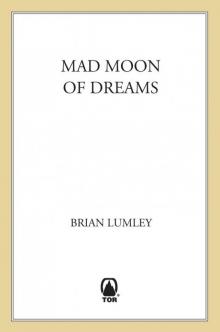 Mad Moon of Dreams
Mad Moon of Dreams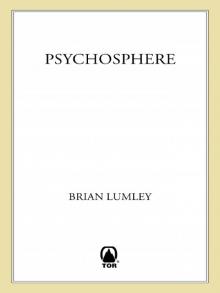 Psychosphere
Psychosphere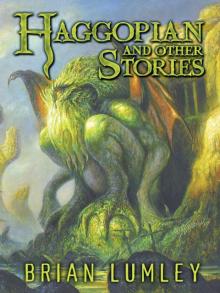 Haggopian and Other Stories
Haggopian and Other Stories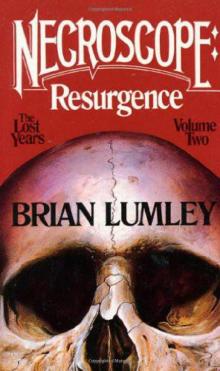 Resurgence_The Lost Years_Volume Two
Resurgence_The Lost Years_Volume Two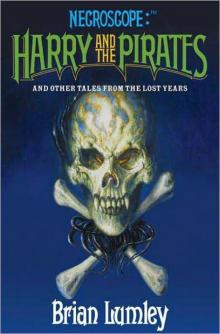 Necroscope: Harry and the Pirates: And Other Tales From the Lost Years
Necroscope: Harry and the Pirates: And Other Tales From the Lost Years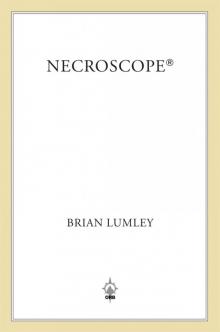 Necroscope®
Necroscope® Dreamlands 5: Questers for Kuranes: Two Tales of Hero and Eldin
Dreamlands 5: Questers for Kuranes: Two Tales of Hero and Eldin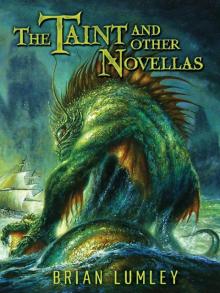 The Taint and Other Novellas: Best Mythos Tales Volume 1
The Taint and Other Novellas: Best Mythos Tales Volume 1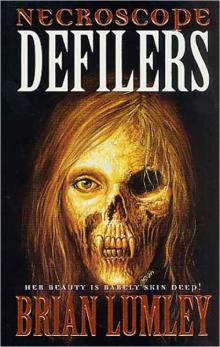 Necroscope: Defilers
Necroscope: Defilers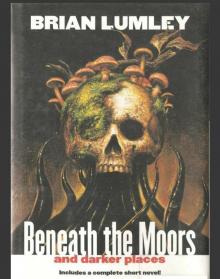 Beneath the Moors and Darker Places
Beneath the Moors and Darker Places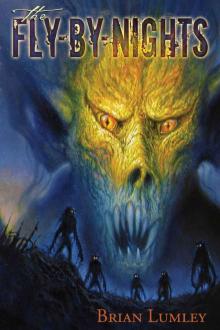 The Fly-By-Nights
The Fly-By-Nights Khai of Khem
Khai of Khem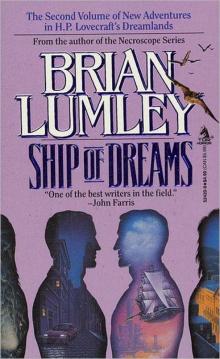 Ship of Dreams
Ship of Dreams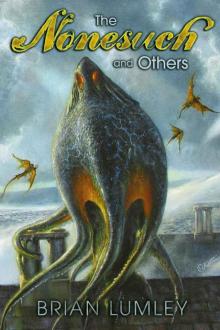 The Nonesuch and Others
The Nonesuch and Others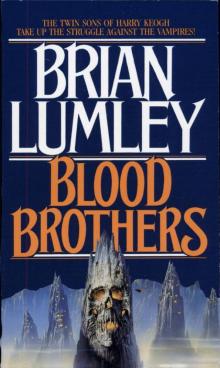 Blood Brothers
Blood Brothers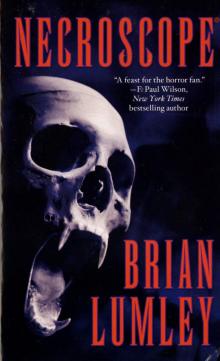 Necroscope
Necroscope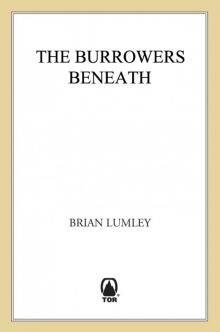 The Burrowers Beneath
The Burrowers Beneath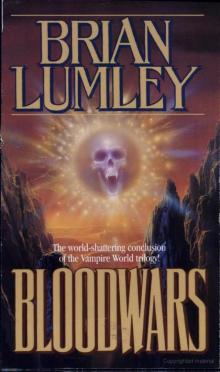 Bloodwars
Bloodwars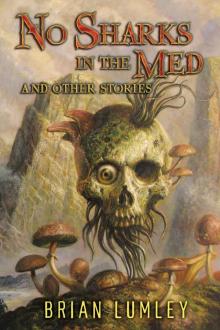 No Sharks in the Med and Other Stories
No Sharks in the Med and Other Stories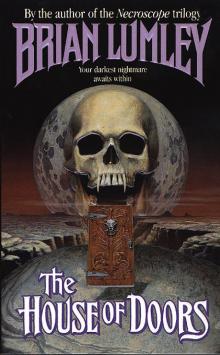 The House of Doors - 01
The House of Doors - 01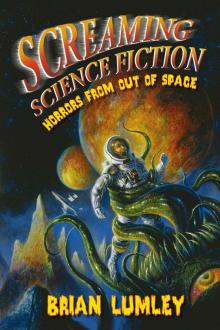 Screaming Science Fiction
Screaming Science Fiction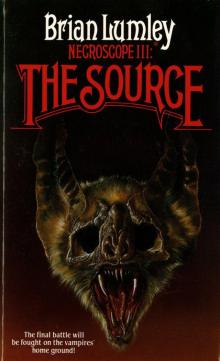 Necroscope III: The Source
Necroscope III: The Source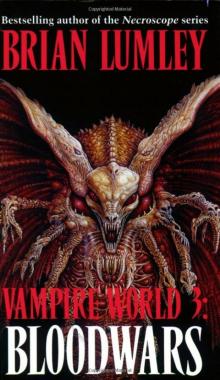 Vampire World I: Blood Brothers
Vampire World I: Blood Brothers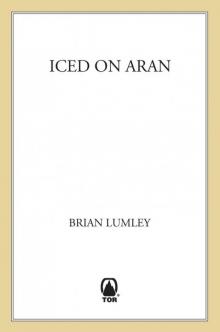 Iced on Aran
Iced on Aran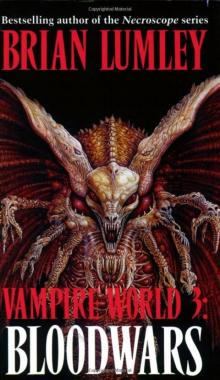 Necroscope: Invaders
Necroscope: Invaders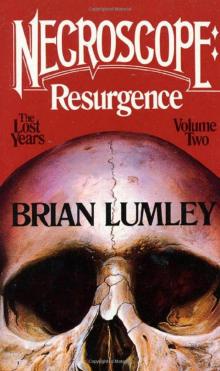 Necroscope: The Lost Years
Necroscope: The Lost Years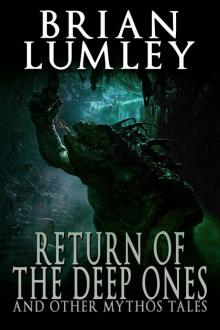 Return of the Deep Ones: And Other Mythos Tales
Return of the Deep Ones: And Other Mythos Tales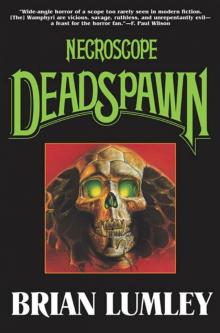 Necroscope V: Deadspawn
Necroscope V: Deadspawn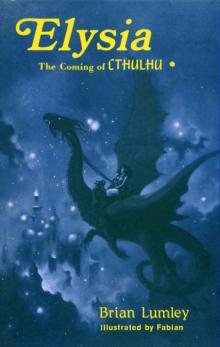 Titus Crow, Volume 3: In the Moons of Borea, Elysia
Titus Crow, Volume 3: In the Moons of Borea, Elysia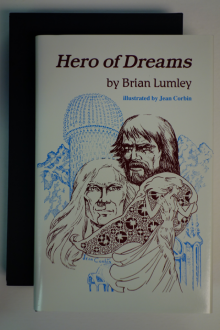 Hero of Dreams
Hero of Dreams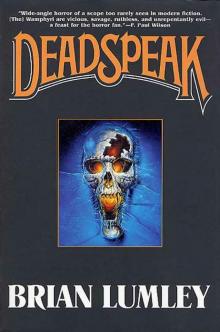 Necroscope IV: Deadspeak
Necroscope IV: Deadspeak The Last Aerie
The Last Aerie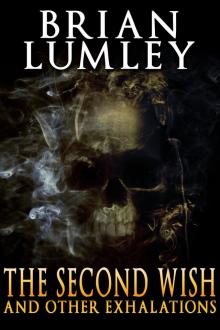 The Second Wish and Other Exhalations
The Second Wish and Other Exhalations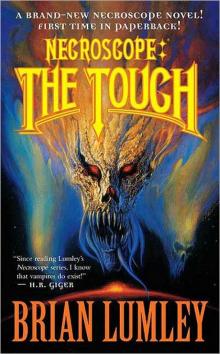 Necroscope: The Touch
Necroscope: The Touch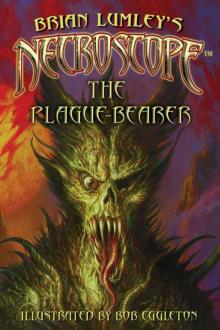 Necroscope: The Plague-Bearer
Necroscope: The Plague-Bearer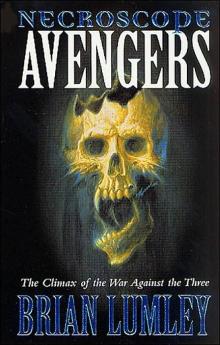 Necroscope: Avengers
Necroscope: Avengers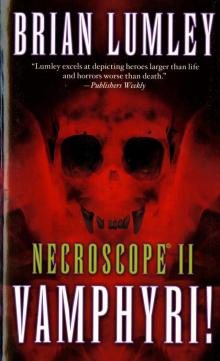 Necroscope II: Wamphyri
Necroscope II: Wamphyri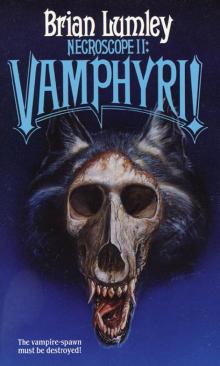 Necroscope II_Vamphyri!
Necroscope II_Vamphyri!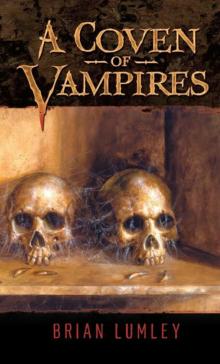 A Coven of Vampires
A Coven of Vampires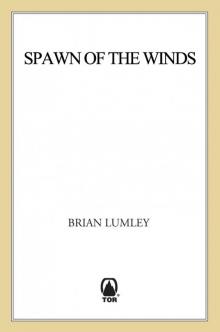 Spawn of the Winds
Spawn of the Winds Sorcery in Shad
Sorcery in Shad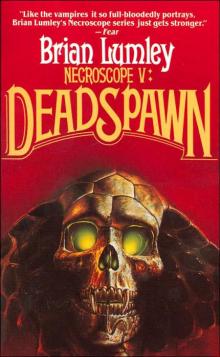 Deadspawn
Deadspawn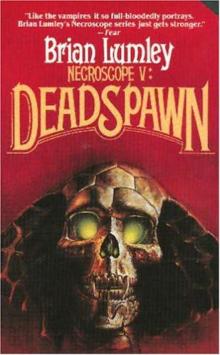 Necroscope V: Deadspawn n-5
Necroscope V: Deadspawn n-5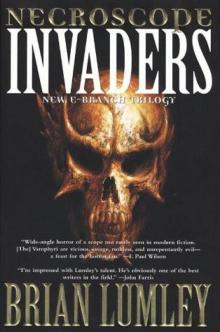 Necroscope: Invaders e-1
Necroscope: Invaders e-1![Beneath the Moors and Darker Places [SSC] Read online](http://i1.bookreadfree.com/i/03/20/beneath_the_moors_and_darker_places_ssc_preview.jpg) Beneath the Moors and Darker Places [SSC]
Beneath the Moors and Darker Places [SSC]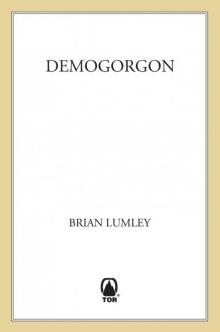 Demogorgon
Demogorgon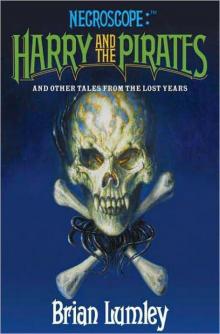 Harry and the Pirates_and Other Tales from the Lost Years
Harry and the Pirates_and Other Tales from the Lost Years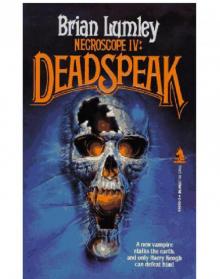 Necroscope IV: Deadspeak n-4
Necroscope IV: Deadspeak n-4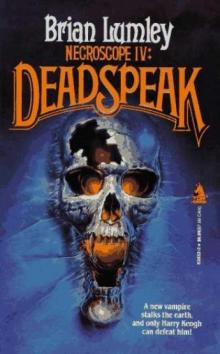 Deadspeak
Deadspeak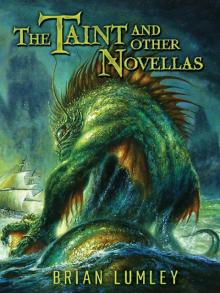 The Taint and Other Novellas
The Taint and Other Novellas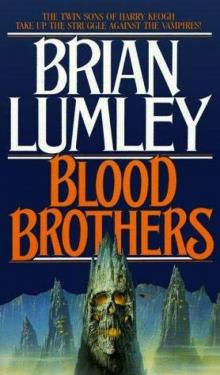 Blood Brothers vw-1
Blood Brothers vw-1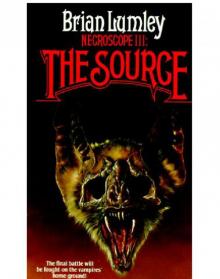 The Source n-3
The Source n-3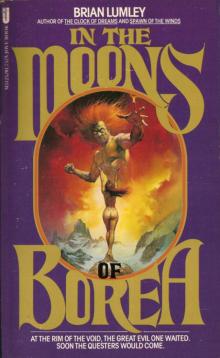 In the Moons of Borea
In the Moons of Borea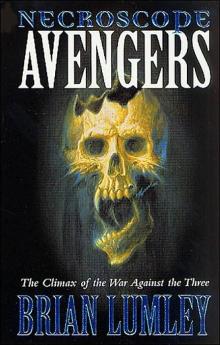 Avengers
Avengers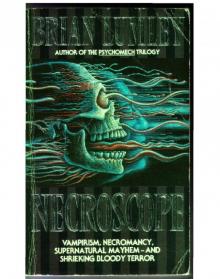 Necroscope n-1
Necroscope n-1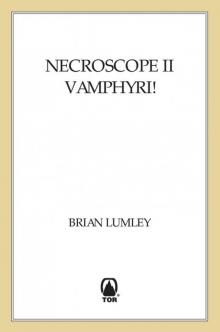 Vamphyri!
Vamphyri! Questers for Kuranes: Two Tales of Hero and Eldin
Questers for Kuranes: Two Tales of Hero and Eldin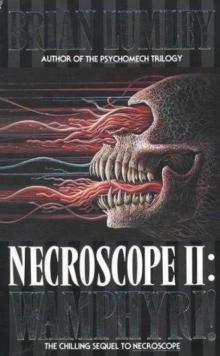 Necroscope II: Wamphyri! n-2
Necroscope II: Wamphyri! n-2 The Source
The Source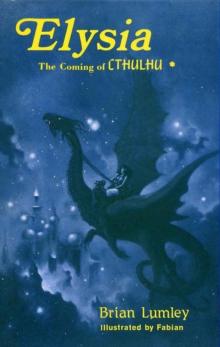 Elysia
Elysia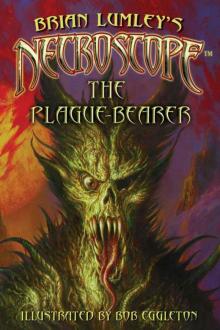 The Plague-Bearer
The Plague-Bearer The Touch
The Touch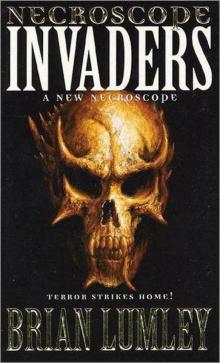 Invaders
Invaders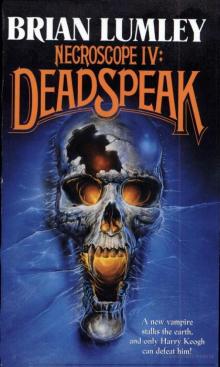 Necroscope 4: Deadspeak
Necroscope 4: Deadspeak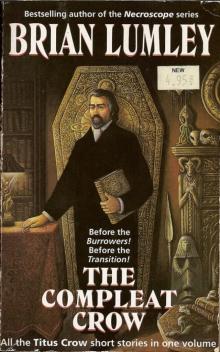 Compleat Crow
Compleat Crow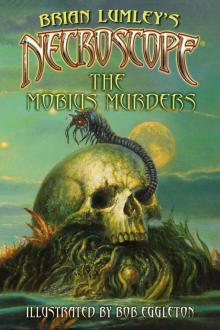 The Mobius Murders
The Mobius Murders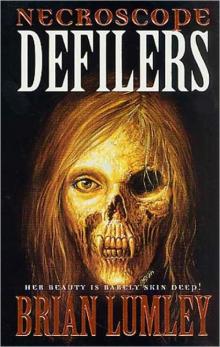 Defilers
Defilers